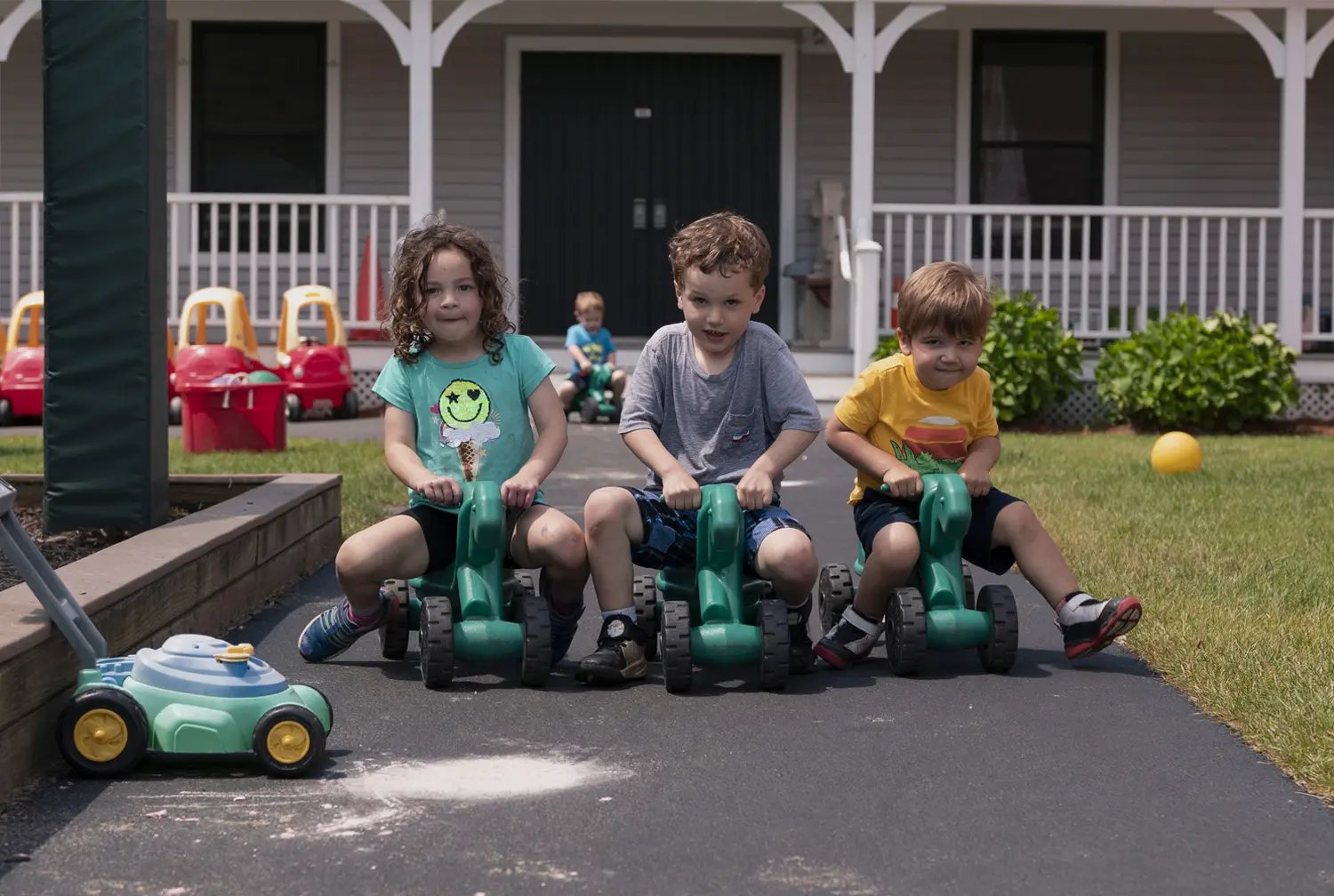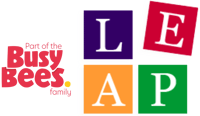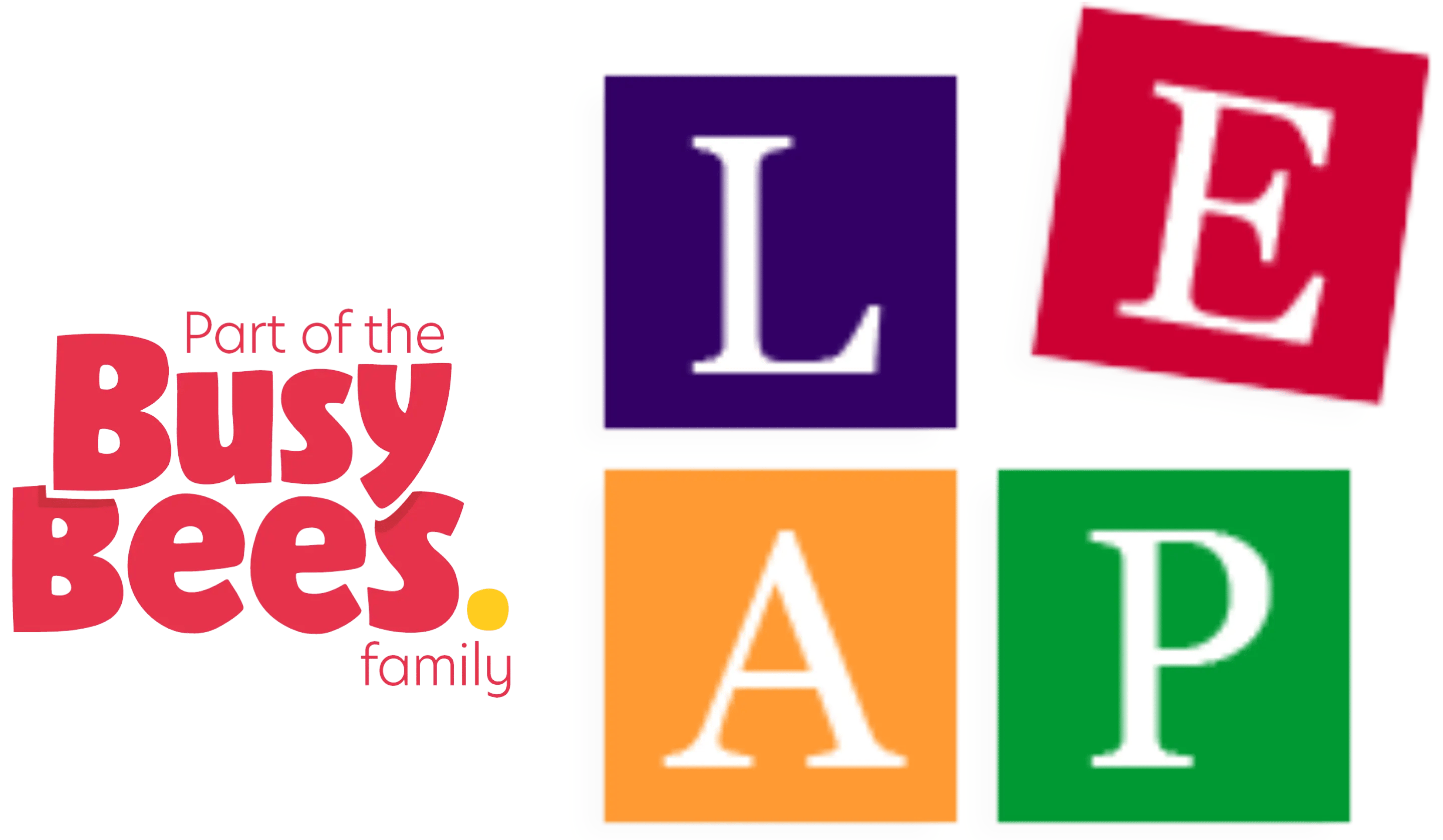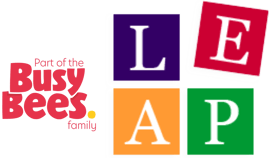
Lower 3's Preschool
Join our Lower 3’s Preschool Program!
The LEAP School’s Lower 3’s preschool program is thoughtfully crafted to provide a safe and stimulating environment where children can thrive and develop essential skills for a strong educational foundation. We understand the unique needs of the children in our care and have tailored our preschool curriculum to meet these needs.
Our 3’s program focuses on teaching children:
- Social/Emotional Skills
- Learning Skills
- Math
- Science
- Imaginative Play Skills
- Literacy & Language
- Group Skills
- Physical Skills
- Expressive Arts
Fill out the form below to learn more!
Social-Emotional Skills:
- Exhibit confidence in own abilities
- Able to express needs and feelings in an age-appropriate way
- Form meaningful relationships with peers
- Show an interest in sharing toys and materials
- Works cooperatively with peers to complete a task
- Respond positively when conflict resolution skills are modeled by a teacher
Learning Skills
- Demonstrate interest in exploring
- Show curiosity and a desire to learn
- Use creativity and imagination
Math
- Participate in sorting, comparing, and describing activities
- Connect many kinds of concrete objects and actions to numbers
- Classify objects by similarities and differences
- Begin to recognize a sequence of events (beginning, middle, end)
- Use concrete objects to solve simple math problems (addition & subtraction) using comparative language (more than, less than, equal to)
Science
- Prediction about changes in materials or objects based on past experiences
- Manipulate a variety of familiar and unfamiliar objects to observe, describe, and compare their properties using appropriate language
- Use their sense of sight, hearing, touch, smell and taste to explore their environment using sensory vocabulary
- Experiment with the concept of balance
- Explore and identify simple machines through play
Imaginative Play
- Assume a pretend role
- Pretend with props and objects
- Interact with other children in imaginative play
Language & Literacy
Verbal
- Generate questions and gathers information to answer their questions in various ways
- Makes up stories
- Engage actively in read-aloud activities
Writing
- Use writing tools for self-expression
- Begin to recognize own name
- Become aware of print and symbols in the classroom environment
- Listen to, recite, sing, and dramatize a variety of age-appropriate literature
- Develop familiarity with the forms of alphabet letters, print, and letter forms
- Use own words or illustrations to describe experiences, tell imaginative stories, or communicate information
- Makes increasingly representational drawings
- Uses emergent writing skills for many purposes
Reading
- Enjoy listening to stories and looking at books
- Able to listen to a story and respond to questions about it
- Demonstrate the ability to use a book (Director, page-turning)
Group Skills
- Able to participate in small group experiences (games, table activities, freeplay)
- Able to participate in large group experiences (circle, specialists, story time)
Physical Skills
- Demonstrates increasing gross motor control and coordination
- Demonstrates increased balance and agility
- Uses small muscles for self-help skills such as pouring and zipping
- Uses classroom materials, such as manipulatives and toys to develop hand grasp and flexibility, finger dexterity
Expressive Art
- Uses creativity and imagination
- Express themselves freely through movements
- Play instruments using different beats, tempos, dynamics and interpretation
- Explore variety of materials of media to create two- and three-dimensional artwork
- Uses creativity and imagination to explore Theatre Arts, Movement & Dance, Music



